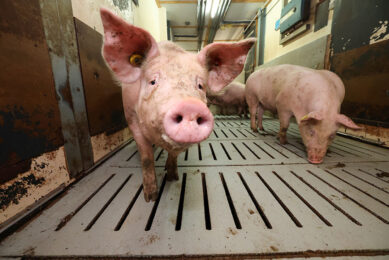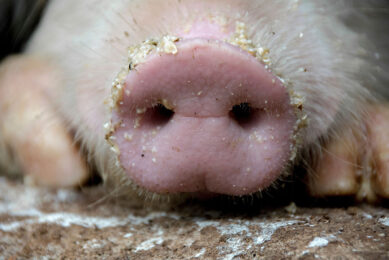Paper evaluates disposal of swine carcasses
In swine production, as in other forms of animal agriculture, a certain number of animals will die on the farm before being marketed.
Mortalities
These death losses, also referred to as mortalities, may be classified broadly as either routine or catastrophic and may impact swine producers, industry, state and federal health and environmental agencies, and the public. To address these possible implications, CAST has released a new Issue Paper, Swine Carcass Disposal Options for Routine and Catastrophic Mortality.
“Although routine swine mortalities represent a small proportion of overall herd size and occur throughout the normal course of production, the issue of routine mortality disposal has received increased public concern and greater regulatory scrutiny as individual swine farms have become increasingly more specialised and larger in size,†says Task Force Chair Allen Harper, Virginia Tech Tidewater Agricultural Research and Extension Centre.
“On the other hand, catastrophic swine mortalities involve greater death losses within a distinct period of time and result from a single event such as a barn fire, hurricane, or flood, or the introduction of an epidemic swine disease.â€
Research & Development
This latest CAST publication, part of a three-part review of swine, poultry, and cattle carcass disposal options, assesses potential strengths and limitations of existing procedures. Further research and development has the potential not only to improve the efficiency and effectiveness of methods currently in practice but also to make emerging technologies applicable on a wider scale.
“Safe, effective disposal of swine carcasses in both routine and catastrophic circumstances is essential for human and animal health, environmental protection, and aesthetics,†says CAST Executive Vice President John Bonner, “and CAST is pleased to provide this new publication to highlight key issues in the ongoing discussion.â€
Related Website
CAST
Subscribe here to the free Pig Progress newsletter
These death losses, also referred to as mortalities, may be classified broadly as either routine or catastrophic and may impact swine producers, industry, state and federal health and environmental agencies, and the public. To address these possible implications, CAST has released a new Issue Paper, Swine Carcass Disposal Options for Routine and Catastrophic Mortality.
“Although routine swine mortalities represent a small proportion of overall herd size and occur throughout the normal course of production, the issue of routine mortality disposal has received increased public concern and greater regulatory scrutiny as individual swine farms have become increasingly more specialised and larger in size,†says Task Force Chair Allen Harper, Virginia Tech Tidewater Agricultural Research and Extension Centre.
“On the other hand, catastrophic swine mortalities involve greater death losses within a distinct period of time and result from a single event such as a barn fire, hurricane, or flood, or the introduction of an epidemic swine disease.â€
Research & Development
This latest CAST publication, part of a three-part review of swine, poultry, and cattle carcass disposal options, assesses potential strengths and limitations of existing procedures. Further research and development has the potential not only to improve the efficiency and effectiveness of methods currently in practice but also to make emerging technologies applicable on a wider scale.
“Safe, effective disposal of swine carcasses in both routine and catastrophic circumstances is essential for human and animal health, environmental protection, and aesthetics,†says CAST Executive Vice President John Bonner, “and CAST is pleased to provide this new publication to highlight key issues in the ongoing discussion.â€
Related Website
CAST
Subscribe here to the free Pig Progress newsletter
Join 18,000+ subscribers
Subscribe to our newsletter to stay updated about all the need-to-know content in the pigsector, three times a week. Beheer
Beheer










 WP Admin
WP Admin  Bewerk bericht
Bewerk bericht